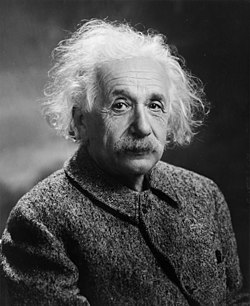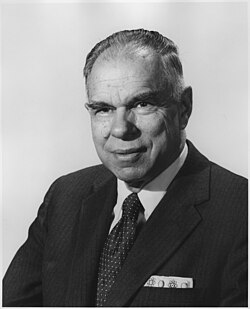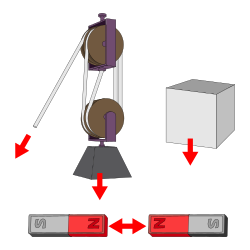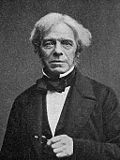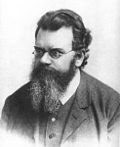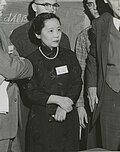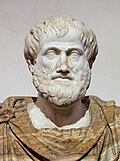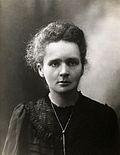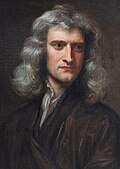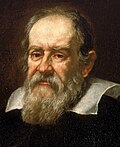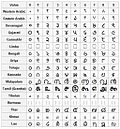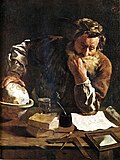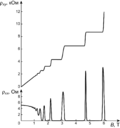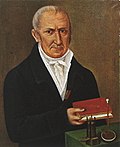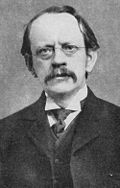Portal:Physics
The Physics Portal


Physics is the scientific study of matter, its fundamental constituents, its motion and behavior through space and time, and the related entities of energy and force. It is one of the most fundamental scientific disciplines. A scientist who specializes in the field of physics is called a physicist.
Physics is one of the oldest academic disciplines. Over much of the past two millennia, physics, chemistry, biology, and certain branches of mathematics were a part of natural philosophy, but during the Scientific Revolution in the 17th century, these natural sciences branched into separate research endeavors. Physics intersects with many interdisciplinary areas of research, such as biophysics and quantum chemistry, and the boundaries of physics are not rigidly defined. New ideas in physics often explain the fundamental mechanisms studied by other sciences and suggest new avenues of research in these and other academic disciplines such as mathematics and philosophy.
Advances in physics often enable new technologies. For example, advances in the understanding of electromagnetism, solid-state physics, and nuclear physics led directly to the development of technologies that have transformed modern society, such as television, computers, domestic appliances, and nuclear weapons; advances in thermodynamics led to the development of industrialization; and advances in mechanics inspired the development of calculus. (Full article...)

The Montreal Laboratory was a program established by the National Research Council of Canada during World War II to undertake nuclear research in collaboration with the United Kingdom, and to absorb some of the scientists and work of the Tube Alloys nuclear project in Britain. It became part of the Manhattan Project, and designed and built some of the world's first nuclear reactors.
After the Fall of France, some French scientists escaped to Britain with their stock of heavy water. They were temporarily installed in the Cavendish Laboratory at the University of Cambridge, where they worked on reactor design. The MAUD Committee was uncertain whether this was relevant to the main task of Tube Alloys, that of building an atomic bomb, although there remained a possibility that a reactor could be used to breed plutonium, which might be used in one. It therefore recommended that they be relocated to the United States, and co-located with the Manhattan Project's reactor effort. Due to American concerns about security (many of the scientists were foreign nationals) and patent claims by the French scientists and Imperial Chemical Industries (ICI), it was decided to relocate them to Canada instead. (Full article...)
Did you know -

- ... that it is estimated that The Sun burns around 620 million metric tons of Hydrogen per second into 616 million metric tons of Helium?
- ... that the Big Bang was secured as the best theory for the origin of the universe by the discovery of the cosmic microwave background radiation in 1964?
- ... that neutron stars are so dense (10¹⁷ kg/m³) that a teaspoonful (5 mL) would have ten times the mass of the total human population?
Selected image -

James Clerk Maxwell FRS FRSE (13 June 1831 – 5 November 1879) was a Scottish[1] theoretical physicist.[2] His most prominent achievement was formulating classical electromagnetic theory. This unites all previously unrelated observations, experiments, and equations of electricity, magnetism, and optics into a consistent theory.[3] Maxwell's equations demonstrate that electricity, magnetism and light are all manifestations of the same phenomenon, namely the electromagnetic field. Subsequently, all other classic laws or equations of these disciplines became simplified cases of Maxwell's equations. Maxwell's achievements concerning electromagnetism have been called the "second great unification in physics",[4] after the first one realised by Isaac Newton.
Related portals
April anniversaries
- 1 April 1997 – Comet Hale-Bopp at perihelion
- 12 April 1633 – Galileo Galilei's trial starts
- 15 April 1707 – Leonhard Euler's birthday
- 18 April 1955 – Albert Einstein's death
- 22 April 1904 – J. Robert Oppenheimer's birthday
- 23 April 1858 – Max Planck's birthday
- 24 April 1990 – Hubble Space Telescope launched
- 25 April 1990 – Hubble Space Telescope deployed from the shuttle Discovery
- 30 April 1777 – Carl Friedrich Gauss's birthday
General images
Categories

Fundamentals: Concepts in physics | Constants | Physical quantities | Units of measure | Mass | Length | Time | Space | Energy | Matter | Force | Gravity | Electricity | Magnetism | Waves
Basic physics: Mechanics | Electromagnetism | Statistical mechanics | Thermodynamics | Quantum mechanics | Theory of relativity | Optics | Acoustics
Specific fields: Acoustics | Astrophysics | Atomic physics | Molecular physics | Optical physics | Computational physics | Condensed matter physics | Nuclear physics | Particle physics | Plasma physics
Tools: Detectors | Interferometry | Measurement | Radiometry | Spectroscopy | Transducers
Background: Physicists | History of physics | Philosophy of physics | Physics education | Physics journals | Physics organizations
Other: Physics in fiction | Physics lists | Physics software | Physics stubs
Physics topics
Classical physics traditionally includes the fields of mechanics, optics, electricity, magnetism, acoustics and thermodynamics. The term Modern physics is normally used for fields which rely heavily on quantum theory, including quantum mechanics, atomic physics, nuclear physics, particle physics and condensed matter physics. General and special relativity are usually considered to be part of modern physics as well.
More recognized content
Associated Wikimedia
The following Wikimedia Foundation sister projects provide more on this subject:
-
Commons
Free media repository -
Wikibooks
Free textbooks and manuals -
Wikidata
Free knowledge base -
Wikinews
Free-content news -
Wikiquote
Collection of quotations -
Wikisource
Free-content library -
Wikiversity
Free learning tools -
Wikivoyage
Free travel guide -
Wiktionary
Dictionary and thesaurus
Sources
- ^ "James Clerk Maxwell". Encyclopædia Britannica. Retrieved 24 February 2010.
Scottish physicist best known for his formulation of electromagnetic theory
- ^ James Clerk Maxwell
- ^ "James Clerk Maxwell". IEEE Global History Network. 2011. Retrieved 2011-06-21.
- ^ Nahin, P.J. (1992). "Maxwell's grand unification". IEEE Spectrum. 29 (3): 45. doi:10.1109/6.123329.
Portals on Wikipedia





